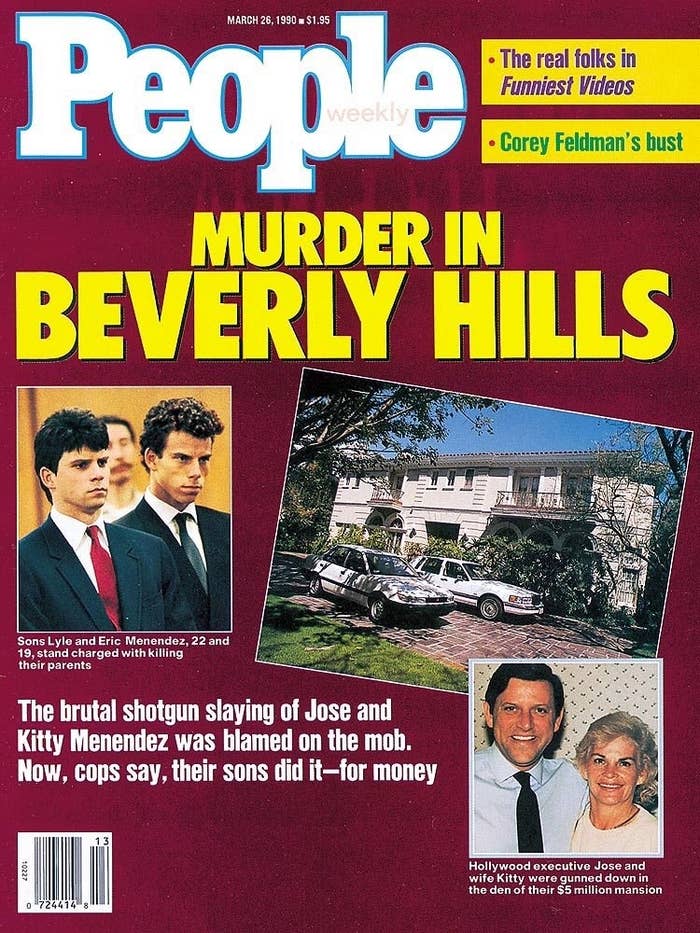When it got to the actual trial part of the film, I felt like it was clear how much of a role the press played in vocalizing what was happening in the criminal justice system. During the trial, whenever something significant happened, the press was on top of it making sure they were ready to expose what was going on to the public. “I can see the headlines right now, Mother vs Mother.” This was said by one of the law officials at the trial for Mr. Hale after a piece of evidence sparked an emotional reaction from the victim’s mother. This shows how the press not only had the ability to get information from the trial to the public, but that they used their power to sensationalize the trial with the dramatics of the event instead of publishing straight facts. Also, when they showed the future headlines in the film after the janitor destroyed Hale’s alibi, it made it seem like the press was using this to bring smaller trial details to a larger light.
After watching this movie in class, I did more research into the connection between reporters and the criminal justice system. According to a Duke article exploring the news media's influence on criminal justice policy and how market-driven news promotes punitiveness, there was an increase in the coverage of crime stories in the news in the 1990s. In this time period, the news covered three major criminal investigations and trials including O.J. Simpson, the Menendez brothers, and JonBenet Ramsay. In these cases, as a result of the changing economic pressures facing news networks, the drive for profit caused them to push works away from hard news and more into tabloid-style crime stories meant to sensationalize. This seems quite similar to he way the trial of Mr. Hale was handled in the film we watched in class.
The O.J. Simpson case was one that quickly became a media obsession during its coverage. Over 2,000 reporters covered the story and 19 television stations covered the trial live. The over-sensationalization of the case caused it to become more of a pop culture event rather than a criminal justice issue and O.J. Simpson ended the trial a free man. Similarly, the case of the Menendez brothers became a spectacle in the news because of how crazy it seemed to the public. Although in this case, the brothers were eventually convicted. Before one of the Menendez brothers confessed the murders to his psychiatrist nobody suspected the brothers, but after their confession, the case completely blew up. The brothers claimed to have committed the crime on account of sexual abuse by their father, yet once the confession was out and the news had gotten a hold of that, the brothers' fates were already sealed. Although in this case I believe that the brothers deserve the sentence they were given, it doesn't change how the news took this case and turned it into a dramatic news story that could've been confused for a dramatic crime show. In another case, the JonBenet Ramsay case, there are a number of canon books, news specials, and TV movies probing and re-dramatizing the case since the evidence and the way the body was found doesn't make much sense. In this case, however, the murderer was never found or charged, making the case that much more intriguing to the public. Yet, the case was completely taken over by the media.
In all of these cases, even though it's clear that there was wrong-doing by the responsible party, the sensationalization of the cases by the media only made them seem like dramatic television shows rather than criminal justice cases. This is all very similar to what happened to Robert Hale in They Won't Forget. Through the media's dramatization of the case, Mr. Hale was charged of the crime he was convicted of, yet we'll never know if he was actually guilty or not. In the O.J. Simpson Case, this was very similar but with the opposite outcome. People still believe Simpson to be guilty but nobody will ever know because he was deemed not guilty. Regardless of the outcomes of any of these cases, it's clear that the media had a large role in making them known to the public. The issue I see in this is that instead of making these cases popular by revealing the facts, the media fed into the curiosity of the public and published these stories in a way that let people make their own assumptions and accusations, causing them all to still be popular cases to this day. But are they popular for the right reasons? That's what The Won't Forget has left us to think about.





No comments:
Post a Comment